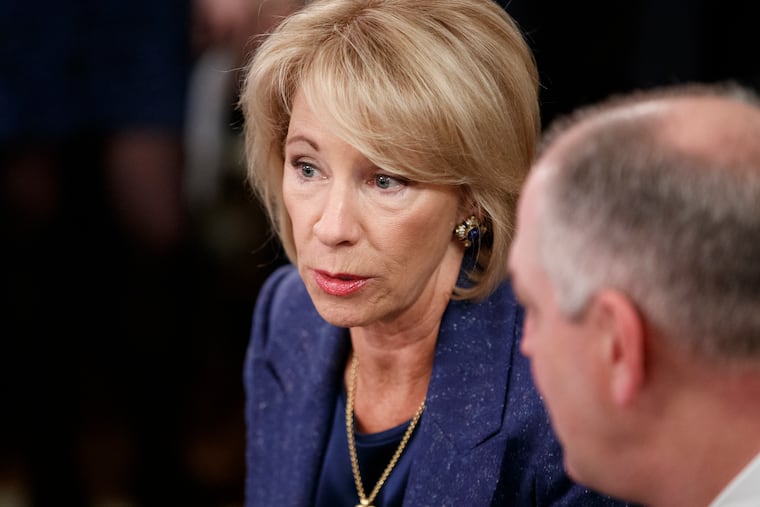Got student loan debt? Court ruling just offered a lifeline | Opinion
The echoes between sky-high student loan debt and the last decade’s mortgage crisis are unmistakable, and frightening.

Consider: $1.5 trillion in student loan debt, millions of struggling borrowers, an out-of-touch federal regulator and assurances that there’s nothing to worry about. The echoes of the last decade’s mortgage crisis are unmistakable, and frightening.
And while the 2020 Democratic candidates discuss bold reforms to make sure that higher education is financially attainable for all, an under-the-radar June 27 federal appeals court decision may help us avoid a repeat of the Great Recession, if states seize the opportunity to protect their residents from the loan servicers that have been presiding over the skyrocketing rise in student debt.
The decision in Nelson v. Great Lakes would be easy to overlook — how often have you wondered whether section 1098g of Title 20 of the U.S. Code preempts state consumer protection statutes? Yet what the 7th U.S. Circuit Court of Appeals has done is throw a lifeline to the 44 million student loan borrowers who send a chunk of their paycheck to their loan servicers every month — including the growing number who can’t afford to send a payment at all.
At issue in this case was whether federal law prevents a borrower, represented on appeal by the National Student Legal Defense Network, from using state consumer protection laws to recover from a servicer that provides false, deceptive, or misleading information about loan repayment options.
Loan servicers play an important role in the lending system, collecting monthly payments and handling borrower issues as they arise. But in recent years the servicers hired by the U.S. Department of Education have been focusing on the former and ignoring the latter. Most notoriously, one loan servicer reportedly instituted a seven-minute rule that required call center workers to handle all calls in a set time, even if that meant misleading borrowers and putting them into inappropriate payment plans that were quickly set up over the phone.
Countless borrowers have been shut out of repayment options that would halve or even eliminate their monthly costs, because enrolling them would mean hiring additional call center workers. More still, including hundreds of thousands of teachers, firefighters, and military service members, have been denied public service loan forgiveness because the loan servicers botched the paperwork or gave borrowers bad advice.
Despite these abuses, the Trump administration has done nothing to protect borrowers from loan servicers. In fact, the administration seems to think it’s the servicers who need protection.
Under Secretary Betsy DeVos’ leadership, the Department of Education has not even come close to taking action to curb abuses by student loan servicing companies. Even the department’s own inspector general has cited the department for the fact that it has only “rarely” held these servicers accountable, despite abundant authority to do so.
Meanwhile, under Secretary DeVos’ leadership, the department has actively worked to prevent states from enforcing their own consumer protection laws, arguing that only the U.S. Department of Education can police loan servicers. As a result, servicers have felt untouchable, and they have acted accordingly. That’s about to change.
State attorneys general know what the problems are. For years we’ve seen the red flags and heard complaints from shortchanged borrowers. At least six states, including Illinois in 2017, have brought cases against student loan servicing companies — and the servicers have uniformly tried to dodge accountability with the same bogus preemption argument.
But now, with that argument shredded, states can get to the heart of the problem: Where a loan servicer has operated with impunity, putting their profits ahead of borrowers’ rights, states have the opportunity to lead a sea change. With aggressive enforcement, they can spur reforms in servicing and give millions of student loan borrowers a path to a brighter financial future.
Lisa Madigan was the Illinois attorney general from 2003 to early 2019. Daniel Zibel is chief counsel for the National Student Legal Defense Network. A version of this piece first appeared in the Chicago Tribune.